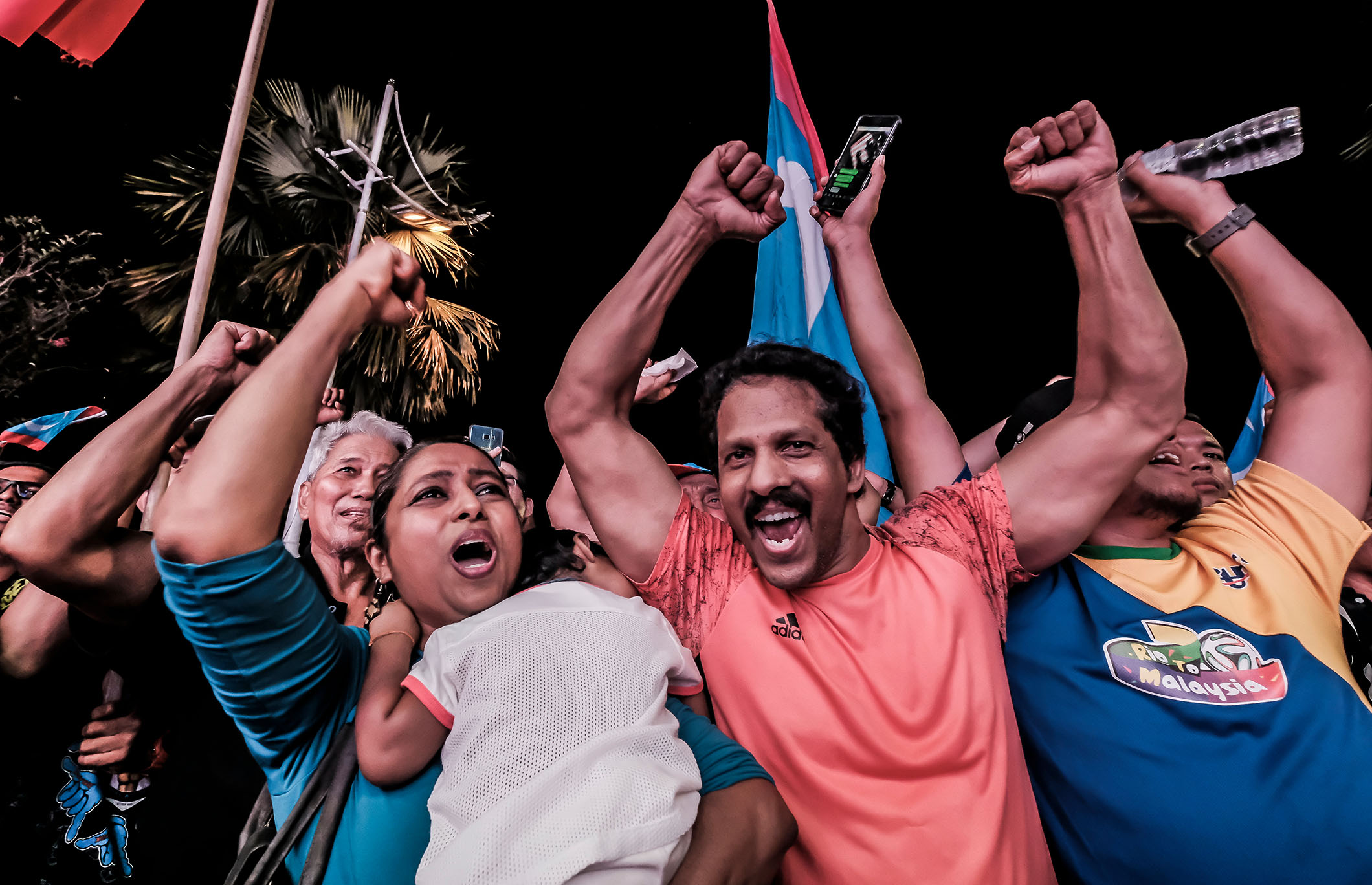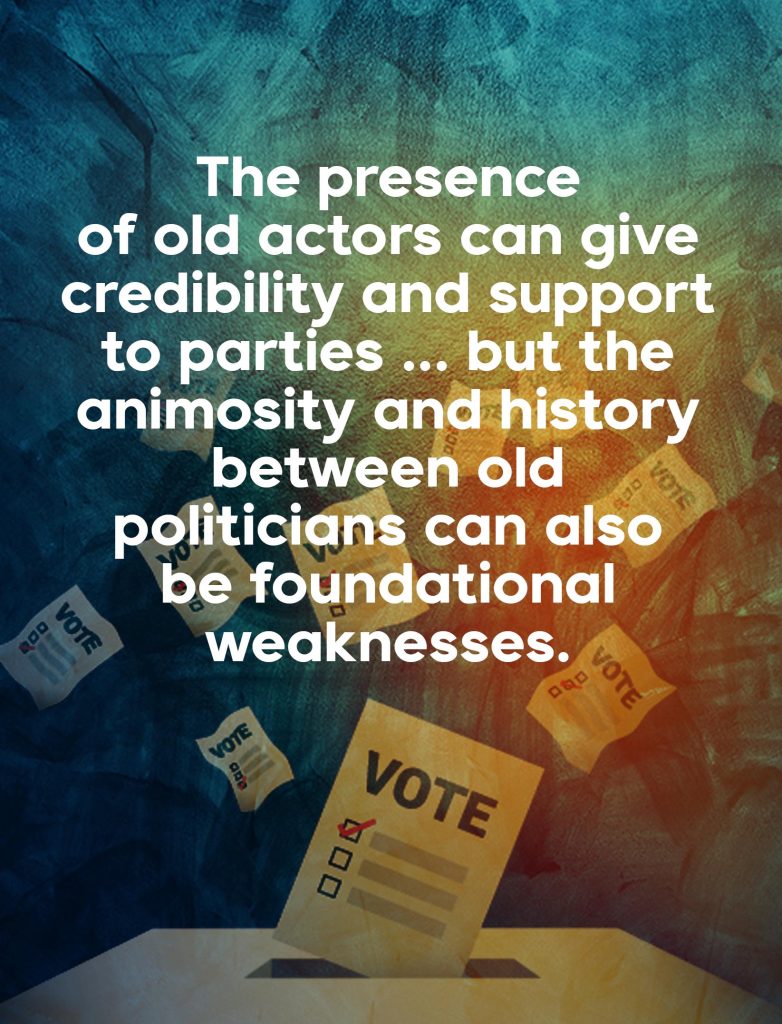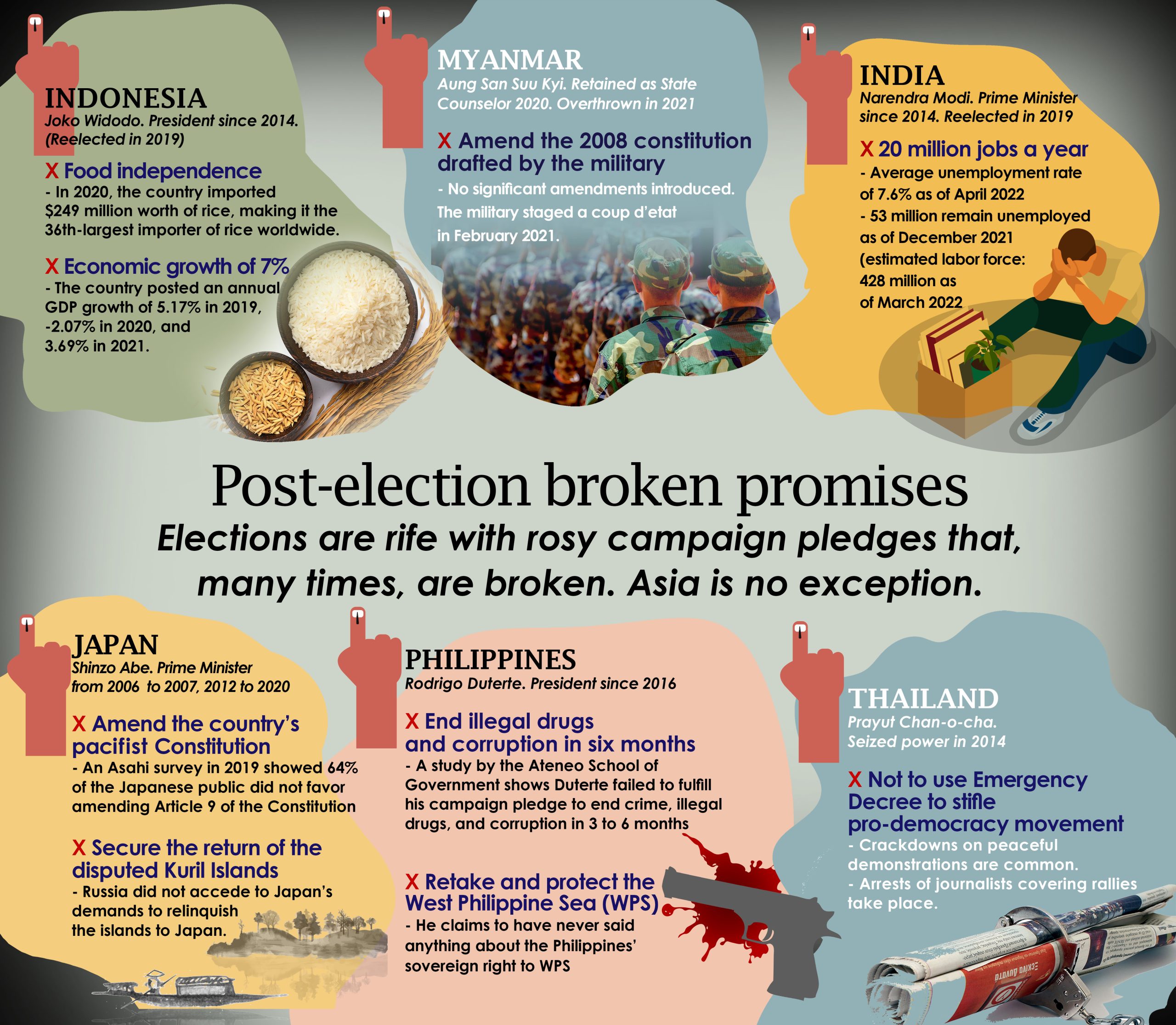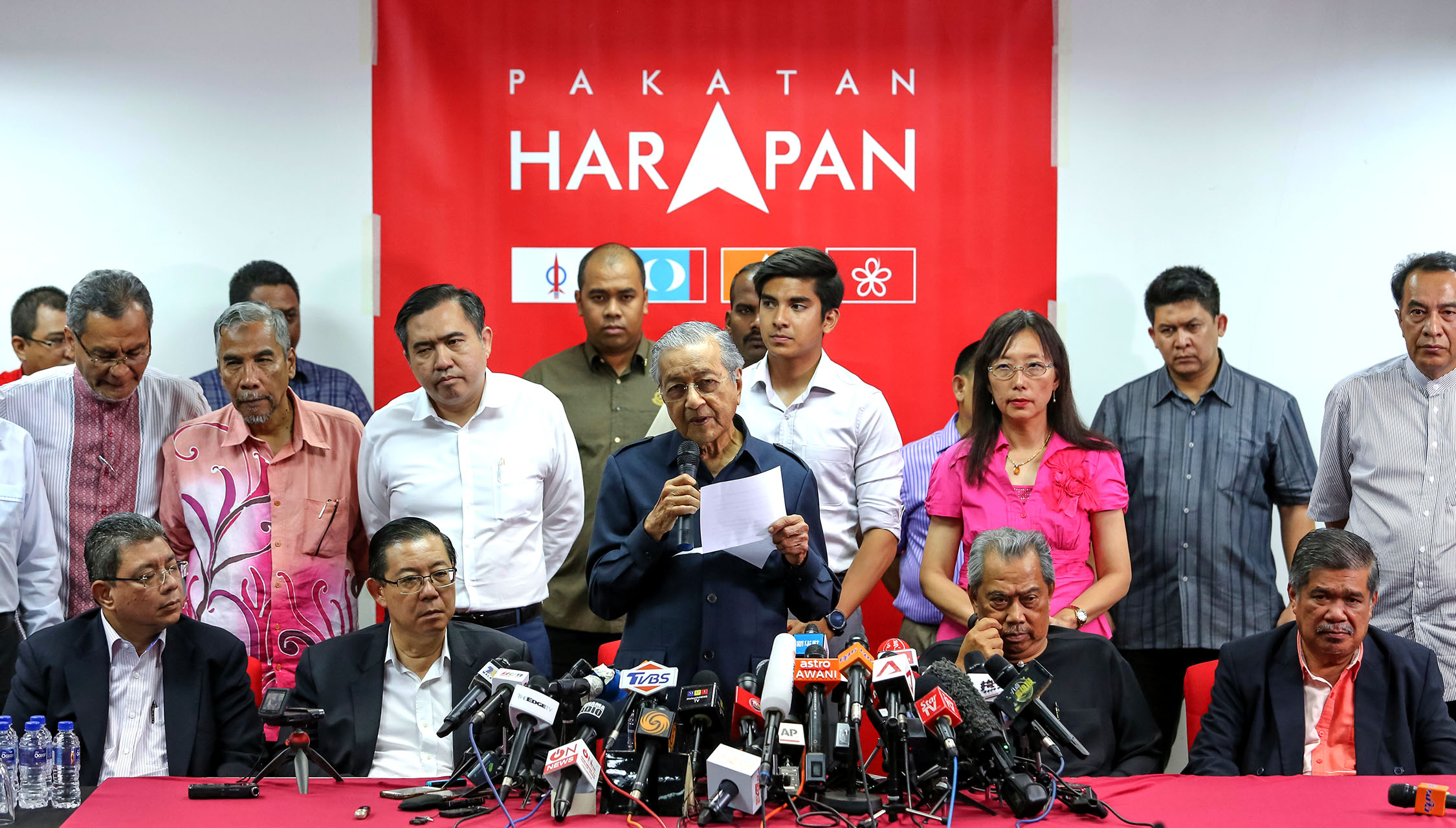|
Getting your Trinity Audio player ready...
|
The 2018 Malaysian elections seemed to herald a new time in Southeast Asia, and hopes were high of democracy sweeping through the region. In Malaysia itself, the 2018 polls were considered watershed elections. It was the first time in 61 years that the ruling Barisan Nasional (BN) was defeated, and article after article went on about how shocking that outcome was.
BN was and is a coalition of three main parties — United Malay National Organization (UMNO), Malaysian Indian Congress (MIC), and Malaysian Chinese Association — as well as other smaller parties representing the Eastern Malaysian states of Sabah and Sarawak. Of the three major parties, UMNO is the strongest. It is also the richest political party in Malaysia — much of its wealth is ill-gotten — and has the support of the majority Malay-Muslim population in the country, without whom no prime minister can hope to rule.
By 2017, however, the corruption scandals that plagued UMNO had led to the loss of support from its strongest base. Furthermore, the country’s Bumiputera policies — its version of affirmative action for Malays who were disenfranchised during British colonial rule — were thought to enrich Malays within the elite rather than the common ethnic Malay. This policy was already hated by minorities in Malaysia, who consider it racist as it entrenches Malay power and disenfranchises them.
But in 2018, the Malay vote swung from UMNO to its main rival Pakatan Harapan (PH). PH, whose name translates to “Alliance of Hope,” made history, with commentators calling the election results a “Malay Tsunami.”

Malaysians celebrate the victory of the Pakatan Harapan coalition in the 14th general election on May 9, 2018, which ended six decades of one-party rule of Barisan Nasional.
For sure, PH was helped by a rising cost of living and an unpopular sales tax, which united people across racial lines. Still, others consider the Mahathir effect to have been the deciding factor in the 2018 elections. Even today, former Prime Minister Mahathir Mohammad, who was Malaysia’s longest-ruling premier and once the country’s most powerful man, still wields considerable influence.
Mahathir defected from UMNO to join the opposition — a sign of how deep the rot went, with a former leader abandoning the party he built. Mahathir began a new political party, Bersatu, which formed a crucial stone column for PH, a coalition that included the Amanah and Keadilan parties, as well as the Democratic Action Party. Mahathir’s Bersatu signaled to Malay voters that it was acceptable to abandon BN, as they had a credible alternative that was looking after Malay interests, helmed by no other than the most respected prime minister in Malaysian history.
Dreams and nightmares
It was probably a combination of these factors — the stars aligning at the right time and place — that led to such a watershed moment in Malaysian history. PH’s “New Malaysia” promise seemed to resonate with voters all over Malaysia, and many citizens took to the streets in happiness. Ron J.B., a lecturer of postcolonial studies at Monash University, Malaysia, says that everyone they knew went out to vote because it was about kicking out “the corrupt archaic regime.” A young Malaysian artist meanwhile recalls, “When PH won, it felt like a dream. I remember the night they counted and announced the results. I was so excited. Finally, there’s change.”

Over the causeway, however, Singapore’s ruling government, the People’s Action Party (PAP), may have been having a nightmare. The PAP, too, had been in power since the country’s independence and it, too, had gerrymandered the system to stay in power as long as possible. Could a surprise upset be imminent in Singapore as well?
When Singapore’s elections were held two years later, many concessions were given, perhaps a result of the fear that the 2018 Malaysian election results may get replicated in Singapore. The PAP won, as it always does, but it had its worst election results ever, and the opposition made serious gains for the first time.
Today, though, the PAP is most likely back to its confident self. After all, in Malaysia, it took only two years for BN to be back in power.
According to Ron J.B., the holes in PH had always been visible. But the pivotal moment that caused the coalition to fall apart came in March 2020, when then Prime Minister Muhyideen Mohammed defected back to BN with 30 members of parliament, effectively ending the PH government.
That was an undignified fall for a coalition that promised so much hope. What happened?
One explanation is that race once again reared its ugly head. When PH won, it seemed as if the Malay vote had turned against UMNO. But scholar Serina Rahman argues that it was corrupt leader Najib Razak whom Malay voters hated, not UMNO itself.
PH also did not enjoy much Malay support after the elections. The opposition managed to lead a successful campaign to characterize the government’s move to ratify the International Convention for the Elimination of Racial Discrimination as an attack on Malay/Bumiputera interests. Malay-first policies have dominated Malaysian politics for over half a century and painting the state as anti-Malay was a sure move for the PH administration to lose large swaths of support among the community.
The Mahathir factor, considered a decisive reason for the win, might also have been a key reason for the fall of PH. While former prime minister Mahathir had promised the position of prime minister to his once arch-rival, Keadilan’s Anwar Ibrahim, his party did not support his decision. The presence of old actors can give credibility and support to parties at certain times, but the animosity and history between old politicians can also be foundational weaknesses. It is difficult to build something new with someone old.
The artist who had once been excited about PH’s 2018 win blames Mahathir as well. She says sadly, “When (he) was reinstated as prime minister, he did nothing.“ She believes that PH held promise, but the party frittered it away.
“If Mahathir has never joined Pakatan we wouldn’t be in such a mess,” she says. But then she quickly adds, “To be fair, our politics were already messy, to begin with.”
Political “golden child”
One of the biggest lessons from the 2018 Malaysian elections is how racial politics — or for that matter, politics tainted by a bias toward one particular group — can derail so much hope and promise. Parties that depend on the continued favor of one group over others will continue to be held hostage by that political “golden child.” Instead of building equality and limiting majority advantages, parties play to their bases, which eventually means antagonism from minorities, and that in turn bleeds into tensions among peoples.

Sources: Independent Observer, World Bank (Indonesia), Friedrich Naumann Foundation, The New York Times, Reuters, The Constitution of Japan, The Economic Times, Interaksyon, Human Rights Watch, World Bank (India), Manila Times
Another lesson is that dynastic politics, so common to Southeast Asian governments, is by nature going to lead to corruption and stagnation. Political heavyweights come with their own baggage. Mahathir and Anwar brought both advantages and disadvantages to their respective roles in PH. Many young voters no longer remember the good old days of economic growth but are instead saddled with rising housing prices, unemployment, and a government unwilling to keep up with the times. From the Lee family in Singapore to the Soekarnos in Indonesia, older thinking dominates, as do old ways. These are not advantageous grounds for a progressive agenda, especially when people are no longer willing to wait for generations for piecemeal change.
Malaysia might be calling its next election as soon as this year, even though it was originally slated for 2023. Barisan Nasional is buoyant with hope after its great showing in the recent Johor Bahru elections in March. Johor Bahru is among Malaysia’s richest states, and its win there was crucial for BN. This came on the heels of its big victory in Melaka, where BN crushed Pakatan Harapan. BN hopes these are signs of things to come. That bright expectation has been further bolstered by the dissension within the opposition, particularly with Anwar Ibrahim — the man twice supposed to be prime minister — under growing pressure to step down as leader of the opposition.
Yet not all is easy at BN. High-profile UMNO leaders are under investigation for corruption, the same problem that led to BN’s downfall in 2018. Will there be a repeat of the 2018 elections?
The story elsewhere
There are also two other Southeast Asian countries with scheduled elections in the first half of this decade: the Philippines in 2022 and 2025, and Indonesia in 2024. Both of these countries grapple with problems similar to Malaysia’s.
During Indonesia’s 2019 polls, political players there even capitalized on the 2018 Malaysian elections, casting Joko Widodo as Indonesia’s Mahathir. After his defeat in 2014, Jokowi (as the Indonesian leader is more popularly known) chose a hardline conservative cleric as his vice presidential candidate in the April 2019 elections, so as not to lose the Muslim vote the way Malaysia’s BN would later experience. He eventually won, which sets up the stage in 2024 for a similar rush toward rightwing Islamist votes in Indonesia.
Indonesia has its dynasties as well. There is evidence that Jokowi, once considered an outsider, is starting his own. And while Indonesia is a more racially progressive state than Malaysia, creeping Islamization has the country’s tourist cash cow Bali worried. Bali is a Hindu state within an overwhelmingly Muslim country. It is always on edge when politicians appeal to fundamentalist Muslim votes.

When former Prime Minister Mahathir Mohammad left UMNO, the party he built, to join Pakatan Harapan (PH), observers noted that the “Mahathir effect” was a factor in PH’s overwhelming win in 2018.
The Philippines, while markedly different from Malaysia and Indonesia, is dealing with the rise of a political heavyweight whose family’s clout is much like Mahathir’s and that of the Lees of Singapore. As Ferdinand Marcos Jr. guns for the presidency, critics accuse him of wanting to whitewash his father’s brutal legacy. His running mate is Sara Duterte, the older daughter of current President Rodrigo Duterte. Dynastic politics are such a problem in the Philippines that experts believe up to 90 percent of election officials in the country are controlled by influential Filipino families.
Is change possible? It seems unlikely. When children of the rich and well-connected come to power, they reproduce the systems their parents put in place. Outsiders sometimes can cause a ripple big enough for change, but they can also be co-opted. Racialization or tribalization by politicians hoping to turn people against each other so that they would not turn against them is a play out of the colonial handbook, and the decolonized states of Southeast Asia cannot seem to stop using it.
The failures of democracy in Southeast Asia point to how entrenched corrupt systems are. A new leader is possible, although that can be a stretch. But even new leaders can’t change old systems. Furthermore, a populace used to the celebrity faces of old politicians re-elect those they feel comfortable with, looking for stability with the old.
The failures are inevitable, as long as the mistakes repeat themselves. ●
Sangeetha Thanapal is a Singaporean social critic and activist who has roots in Malaysia. She is based in Australia.



















